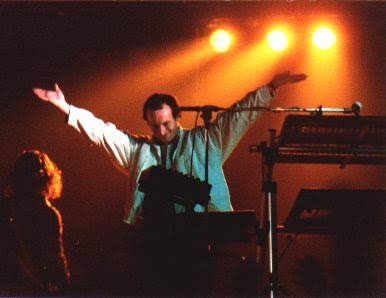DON'T SHOOT ME...Martin Orford

Martin Orford is one of the leading figures in neo prog zone and aswell one of co founders of excellent IQ in early '80s. Also he was part of Jadis and aswell has a solo career. He releases under his name 2 albums, one in 2000 and second offer is coming later on in 2008 named The old road. Sadly, this is his last album he ever wrote or participate in, because he decided to anounced his farewell to musical bussines after 30+ years career. IQ Tales From The Lush Attic MRC,1983 https://www.sendspace.com/file/zk63y3